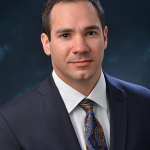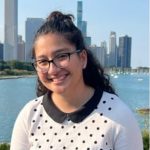Abstract:
Reactions which can manipulate the connectivity of the molecular skeleton are underexplored as tools for late-stage functionalization, in part because their implementation has been hindered by their often nonintuitive retrosynthetic logic. This presentation will cover selected transformations discovered in our laboratory which address this challenge by enabling single-atom changes to aliphatic and aromatic systems through the insertion and deletion of single heavy atoms (C,N,O, etc.), as well as more complex manipulations leveraging combinations of these elementary transformations. Our approach to this problem is modality-agnostic, drawing from a wide range of reactive species and synthetic disciplines, but with a significant focus on reagent design and photochemistry. Applications to late-stage functionalization and diversification of complex pharmaceutically relevant compounds as well as unique opportunities for synthesis will be presented alongside mechanistic findings.
About the Speaker:
Mark was born and raised in Cleveland, OH as the oldest of three children in a Russian-Jewish immigrant family. In 2012, he earned a B.S. in chemistry from the University of Rochester in Rochester, NY, conducting undergraduate research with Professor Alison J. Frontier on an oxidative variant of the Nazarov cyclization. Through participation in the DAAD RISE program, Mark also spent the summer of 2010 conducting research with Henning Hopf at TU Braunschweig on the synthesis of strained hydrocarbons. After graduation, he joined the laboratory of Professor F. Dean Toste at the University of California, Berkeley. There, he studied the chemistry of the Au(I)/Au(III) redox couple in several contexts, including supramolecular catalysis and fluorine-18 radiosynthesis. After earning his Ph.D. in 2017, Mark joined the laboratory of Professor Eric N. Jacobsen as an NIH Postdoctoral Fellow at Harvard University where his research focused on enantioselective fluorination reactions with chiral organoiodane catalysts. In 2019, Mark joined the University of Chicago as an assistant professor of chemistry and was promoted to associate professor with tenure in 2022. His research interests include the development of synthetic methodology and study of their mechanisms, with a specific focus on “single-atom skeletal editing”.



